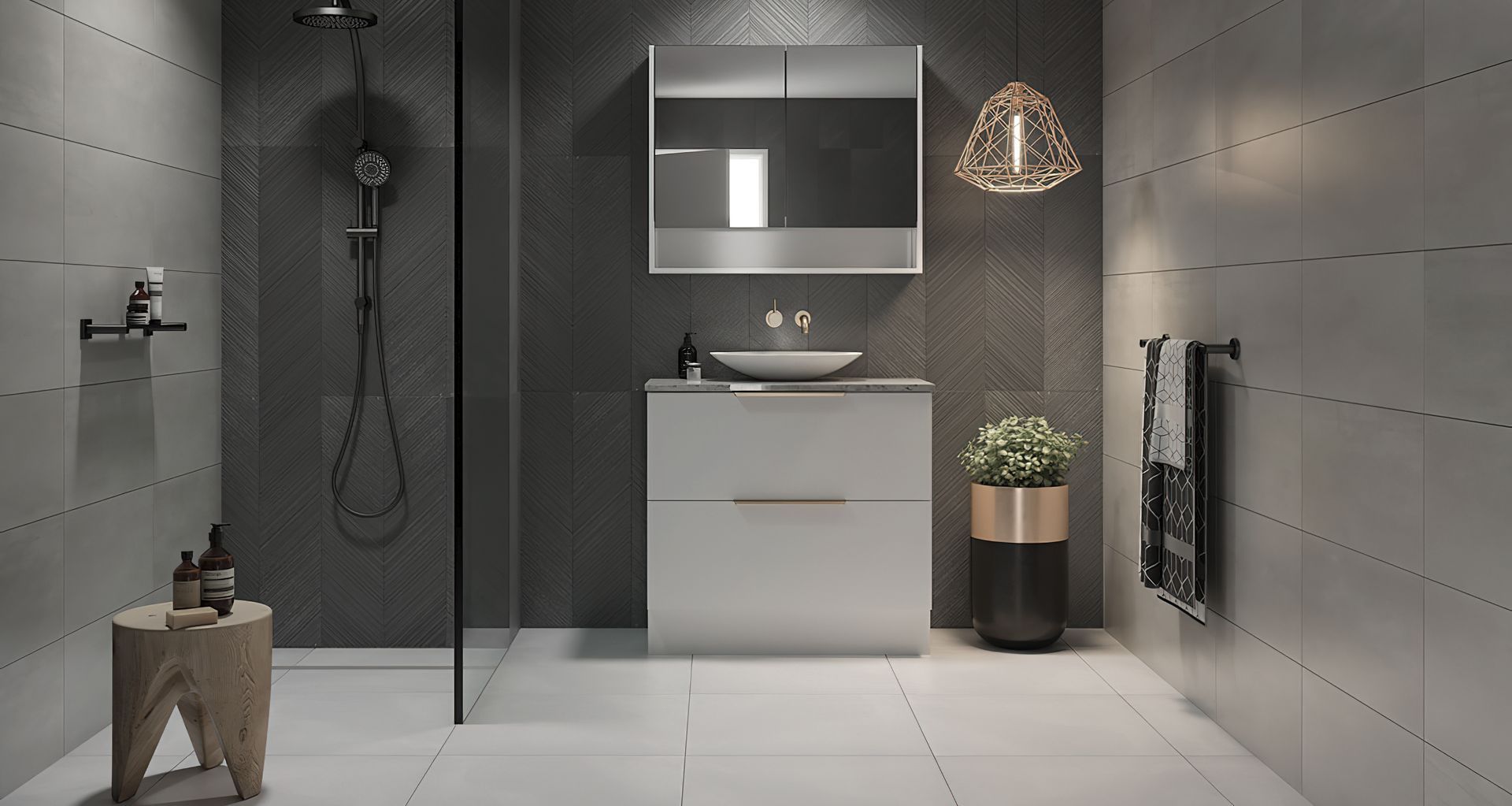10 of the best indoor plants for your bathroom
Written by
06 September 2022
•
4 min read

While greenery can instantly elevate the appearance of any room in the house, when placed strategically around your bathroom it creates a spa-like experience that can transport you away from the worries of the day. However, to ensure your bathroom is brimming with lush, healthy leaves, it’s important to select plants that will appreciate the humid environment. Read on to discover the best indoor plants for your bathroom.
Bromeliads (bromeliaceae)
The colourful bromeliad prefers bright light without direct sun, plenty of air flow and a bit of humidity. Ensure it stays moist – but never soggy – and has adequate drainage. Browning leaves are a sign of too much water.
Venus flytraps (dionaea)
These carnivorous plants can survive off the bug population of the average home and prefer lots of sunlight. They will appreciate a sunny windowsill and shallow tray of water to sit in. Crispy leaves suggest too much sunlight.
Spider plant (chlorophytum comosum)
You can consider the spider plant the goldilocks of the plant world. They like even moisture, but should never be too dry or too wet. Spider plants enjoy moderate indirect sunlight but do not appreciate hot and direct sunlight as it can burn their leaves. Allow the top few centimetres of soil to dry out before watering.
Pothos/Devil’s ivy (epipremnum aureum)
Devil’s ivy is a trailing beauty that grows quickly and easily. It will enjoy a well-lit spot but doesn't enjoy direct sunlight or draughty locations. Pothos is a drought-tolerant plant so no need to water it heavily, but keep in mind if the leaves are pale it needs a little more sunlight.
Moth orchid (phalaenopsis)
Keep your orchid somewhere warm and humid, and away from direct sunlight and air-conditioning units. Only water the roots when the plant is almost dry, and if the soil feels wet don’t water it at all.
Peace lily (spathiphyllum)
These indoor mainstays prefer bright indirect sunlight and regular watering when their leaves start to droop. They’ll appreciate a liquid house plant food every two to three weeks in spring and summer, and develop brown tips if they don't get enough water or humidity.
Zanzibar gem (zamioculcas)
Although zanzibar gems will adjust to a low light environment – and even survive under fluorescent lights alone – they do prefer bright or medium indirect sunlight. Water thoroughly once a week or when the top few centimetres of soil are dry.
Read now: 5 innovative landscaping studios with elevated outdoor designs
Boston fern (nephrolepis exaltata)
Full and luscious, ferns thrive in a cool environment with high humidity and indirect light. Mist your fern once or twice a week to keep the soil damp. If the leaves turn yellow the humidity is too low.
Air plants (tillandsias)
There are more than 650 types of air plants that can grow and thrive without soil. All they need is good air circulation, a misting of water every few days, dappled sunlight and temperatures of more than eight degrees. A few hours of bright indirect sunlight won’t hurt them, either.
Aloe vera (aloe barbadensis)
Known for its ability to soothe sunburn and itchy bug bites, aloe vera is a low-maintenance plant that doesn’t require much watering, only when the top few centimetres of soil have dried out. Position aloe vera in a brightly lit spot, but beware of red leaves as this is a sign of sunburn. Pale or yellow leaves are a sign of over watering and wrinkled leaves mean your little plant is thirsty.
Browse the range of gorgeous garden and outdoor products on ArchiPro.


